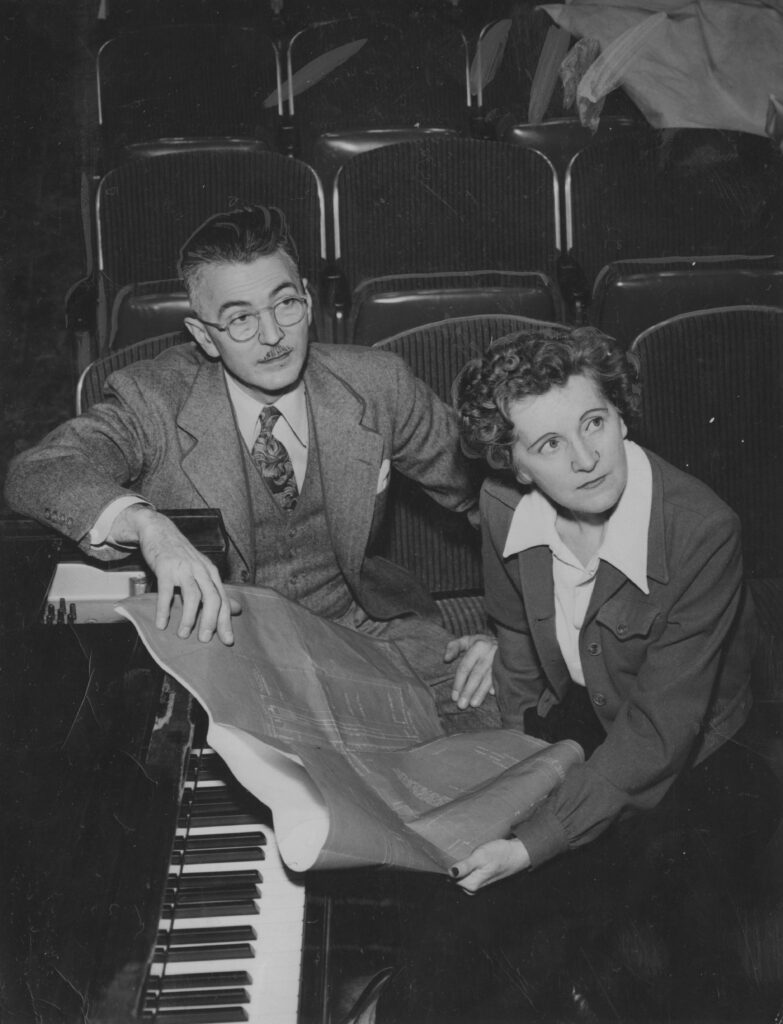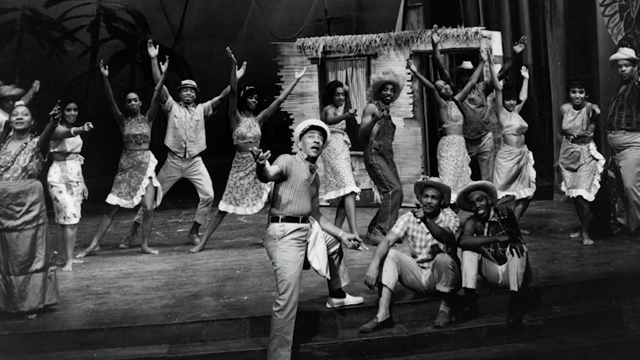and the Power of Art
By John Perse
“Any form of art is a form of power; it has impact, it can affect change – it can not only move us, it makes us move.”
-Ossie Davis, in Jeanne Noble’s Beautiful, Also, Are the Souls of My Black Sisters
The above quote captures the essence of Rowena Jelliffe (1892–1992), a noted leader in both the arts and the social reform movement in Cleveland. Her work and achievements, along with those of her husband, Russell Jelliffe (1891–1980) helped to promote racial equality and social reform in their adopted hometown. The couple met in college at Oberlin, and they moved to Cleveland because at the time, it was considered a socially progressive city. Their founding of the Playhouse Settlement in 1915 – located originally on East 38th Street – to aid Black families migrating to Cleveland during the Great Migration eventually led to the establishment of the Karamu House in Cleveland’s Fairfax neighborhood. By the time the Jelliffes retired in 1963, they had built Karamu into a nationally recognized organization with 4,000 members and a $1 million facility.

Russell and Rowena Jelliffe in Karamu House theater, 1949 via Cleveland Public Library
The Jelliffes were very involved in all aspects of Karamu House, which became “an integrated community center dedicated to fostering human relations through the arts and humanities,” by incorporating theater productions with social outreach programs, including a nursery for neighborhood women, and an arts and music center.1 The fact that Karamu House became a leading theater for interracial productions shows the power of the connection between the arts and social reform. It was at Karamu House that a young Langston Hughes, living nearby on East 86th Street, first met the Jelliffes, who encouraged him to continue his writing.
Later in life, both Rowena and Russell became involved in other social reform movements including women’s suffrage, racial integration, and adult education. In fact, Rowena marched with Martin Luther King, Jr. For their contributions to social reform and equality, “… the Jelliffes were jointly awarded the Eisenman Award for “outstanding contributions to the civic and social betterment of Cleveland.” They received Honorary Doctors of Law Degrees from Oberlin College in 1944 and Honorary Doctors of Humanities Degrees from Western Reserve University in 1951.2
Perhaps the most impressive honor the Jelliffes received came in 1963 from the pen of the great Langston Hughes, who by that time had become world renowned for his work. The poem’s title? “A Poem for Russell and Rowena Jelliffe.”
“For Russell and Rowena Jelliffe” by Langston Hughes 1963
And so the seed
Becomes a flower
And in its hour
Reproduces dreams
And flowers.
And so the root
Becomes a trunk
And then a tree
And seeds of trees
And springtime sap
And summer shade
And autumn leaves
And shape of poems
And dreams–
More than tree.
And so it is
With those who make
Of life a flower,
A tree, a dream
Reproducing (on into
Its own and mine
And your infinity)
Its beauty and its life
In you and me.
And so it was
And is with you:
The seed, the flower,
The root, the tree,
The dream, the you.
This poem I make
(From poems you made)
For you.
